How to Master the Art of Learning New Skills: A Guide for Effective Leaders
Mastering new skills is not an option in today’s fluid world of ministry and business leadership. Effective leaders know that learning how to learn new skills is one of the keys to their personal success. And equipping those they lead in the art of learning new skills will determine the success of their organization. Being skilled is good – knowing how to equip a lot of people to gain new skills is better.
How can we get better at the art of learning new skills?
Decide where you want to improve. Where do you see opportunity for growth and improvement based on your current responsibility? Do you need to get better at leading meetings, communicating publically, marketing, analyzing data or using particular software? Life-long learning is driven by our willingness to be stretched by our circumstances in ways that are not easy or comfortable at first.
Check your calendar and your heart. Learning new things takes time, humility and energy – these are the three parts of commitment. I wish learning were as simple as down loading an app or getting a skill prescription from the leadership pharmacist. Imagine going to a window and asking for a six-month dose of public speaking skills. If learning new things were as simple as getting a prescription filled more people would do it. But learning takes humility, space and effort. It takes heart.
An easy way to check your calendar and your heart is to ask yourself a question. Why do I want to learn this new skill? The heart felt reason, the why behind the what, matters. A heart with a meaningful why is more likely to create the space and generate the energy necessary to do the learning. The point here is not to shy away from the demands of learning but to make sure what you attempt is attainable given the other important time demands on your life.
Assess the return on your investment. Acquiring a new skill is an investment for you, your family and your organization. You need to assess the value of the investment you are about to make before the journey begins. Ask this question; is the new skill relevant to your current position, your overall career/calling, your organization, or your family? If the new skill will advance the organization’s mission, increase your pay scale or level of influence within the organization the learning is likely worth the effort. If the skill is interesting or would be nice to have but does not have an immediate place of application the investment of your time and energy and cost to your family are probably better placed somewhere else.
Study the way you learn. How do you learn best? When you think back to your best learning experiences how was the material delivered? What did your best learning experiences have in common? Were you reading, seeing visuals, watching videos, hearing an instructor in a classroom, was it hands-on or was it on-the-job? Don’t over think this, but if possible build your learning path based on what has worked for you in the past.
Build in accountability for new learning and improvement. Support from others in the learning process is game changing. When people have a need to learn a new skill that is connected to helpful information, a clear goal and a supportive relationship the likelihood of personal growth goes up dramatically. Supportive relationships mean you are sharing your goals with people who can provide the type of support you need along the way. These people can help keep you on track and honest about how much you’re improving.
Where do you find this kind of support? Ask yourself these questions: Other than my direct supervisor, who in my organization or on my team would be able to see my growth and offer me honest feedback? If you can’t find support in your work setting, who do you know in your extended network that has already mastered the skill you want to learn?
Once you locate the person simply let them know what you see in them and let them know what your goal is and ask them if they would be willing to help you by sharing what they know and offering honest feedback on your progress.
Practice in small intentional steps what you hope becomes an unconscious habit. Life-long learning takes a lifetime. Don’t try to acquire too many new skills too quickly. Consistent attention and efforts over time produce greater results than short bursts of intense effort sporadically. Choose one skill to establish and master at a time. Make developing that skill a series of manageable goals. An example of this could be your need to lead better meetings. If you need to get better at leading meetings start by becoming consistent at creating a shared agenda or making sure you assign action steps at the close of each meeting.
Pass on to others what you are learning. 2 Timothy 2:2 “And the things you have heard me say in the presence of many witnesses entrust to reliable people who will also be qualified to teach others.” Did you ever wonder why the apostle Paul wrote these words to Timothy? Maybe it is because he knew one of the best ways to really learn something is not only to practice it but to teach it to others as well. So as you are sharing with your team, supervisor, or other coworkers what you are learning you are reminding yourself and deepening your own learning as well. Part of the learning process is putting a date on the calendar to begin passing on the new skill you are learning!
It is reported that at age 87 Michelangelo said, “I am still learning.” The truth is you can learn new things at any time in your life if you are willing to have the humility and tenacity of a beginner.




